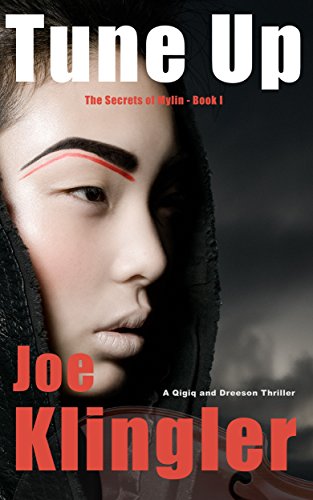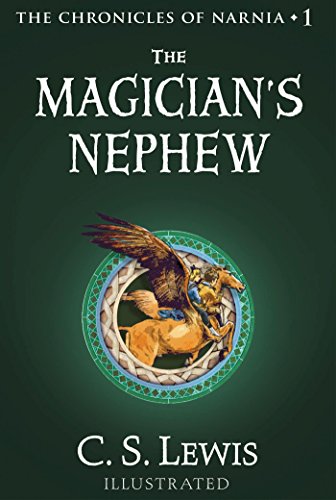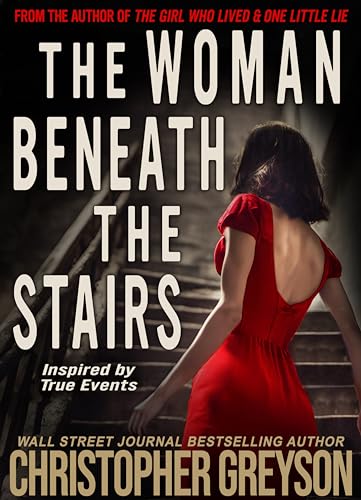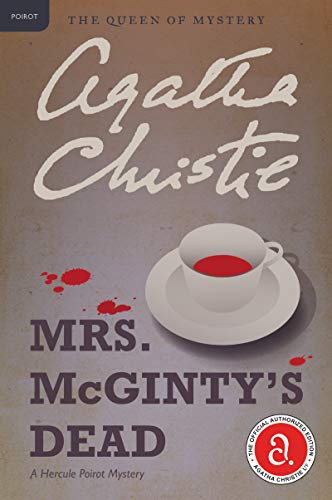On Friday we announced that Glenn Shepard, MD’s Not For Profit is our Thriller of the Week and the sponsor of thousands of great bargains in the thriller, mystery, and suspense categories: over 200 free titles, over 600 quality 99-centers, and thousands more that you can read for free through the Kindle Lending Library if you have Amazon Prime!
Now we’re back to offer our weekly free Thriller excerpt:
Not For Profit (The Dr. Scott James Thriller Series)
by Glenn Shepard, MD
A prominent surgeon accused of murder and terrorism…
A corrupt healthcare administrator hell-bent on bloody revenge…
A mysterious seductress whose secrets could free the doctor and kill thousands…
A terrorist cell with missiles aimed at a leading hospital in America’s Bible Belt…
Not for Profit takes you on an action-packed thrill ride that will have you questioning suspects, motives, and outcomes until the very last page.
Renowned plastic surgeon Dr. Scott James is charged with murder after two bodies are found at his surgery center. Just weeks before the start of his capital murder trial, Dr. James is approached by a beautiful woman claiming she can help him gain information that would prove his innocence.
As James hunts down the evidence that might free him, he faces a barrage of threats to his life and liberty–and makes one chilling discovery after another: Corporate corruption. A conspiracy to frame him for murder and for terrorist acts. A secret drone-control operation that takes out targets in Afghanistan and Pakistan. The true identity and intent of his beautiful ally. And a plot to blow up the local hospital and surrounding community.
And here, for your reading pleasure, is our free excerpt:
Prologue
Deep in a forest in Ancient Greece, a young man by the name of Orchis stumbled upon a festival in honor of the god Dionysius. It was a wild celebration filled with drinking and dancing. Young Orchis was drawn to the party and decided to join in. After a few hours and a few too many goblets of wine, he tried to rape a Dionysian priestess. Upon witnessing this violation, his fellow revelers tore him to pieces. The next morning, his father gathered together the pieces of his dead son, but he could not resurrect him. As he fell to his knees, Orchis’ father prayed to his gods for aid in bringing his son back to life. The Greek gods wanted to help, but they could not just restore Orchis. He needed to be punished for what he had done. So, instead of bringing Orchis back to life as a man, they transformed him into a slender flower—what we now call an orchid.
Cartersville, West Virginia
My patient was almost six months old. Bright blue eyes. Curly, platinum-blonde hair. Cute pink fingers. Her name was Britney Ann Cooper. She was a perfect twelve-pound baby girl—except for the angry, open gash that trailed from her nose to her mouth. For most children, the palate fuses together before birth, but for one in every 700, it does not.
Britney’s mother was distraught. Her friends kept saying that God had given Britney a cleft palate for a reason. They kept telling her that she was being punished by God for her sins. They said that if she tried to change Britney, God would strike her baby dead.
I disagreed. “Nobody’s dying in my operating room today. Not if I can help it.
Britney’s mom asked, “Is she gonna be okay?”
“Yep. I promise. Never lost one yet. Trust me. Gimme an hour, and she’ll be good as new.”
Britney’s mom had no insurance. She was unmarried, seventeen years old, and on welfare. I was standing next to her in a makeshift OR in the back of a free clinic in a single-wide trailer. Sweat dripped down into my eyes. It was 97 degrees, and there was no air conditioning. This part of West Virginia is as poor as some cities in Third World countries.
“Okay. Fine. Whatever. Just do it, but I can’t watch,” Britney’s mom said through tears before turning to run out of the trailer.
A nurse anesthetist stuck an endotracheal tube down Britney’s throat. One slip on her part and my skills would be lost on a dead baby. I tried to focus on the task at hand. I turned to the circulator nurse as she wiped my forehead. “Hey, if it’s too easy, it’s no fun—right?”
My patient rested on a gynecology examining table, the only table the free clinic had for surgery. The leg stirrups had been removed, but the attaching mounts stuck up so far from the table that it kept me at arms-distance away from my tiny patient.
I stared though my magnifying loupes and traced the length of the cleft. It opened at the floor of the nostril and down through the upper lip and back over the palate, dividing it all the way through to the uvula. I paused before lifting the scalpel.
If I had been in my air-conditioned cosmetic surgery office in North Carolina, I would have repaired the lip then and the palate the following year. Closing the lip early is essential to containing the mouth, so the baby can suck and feed on a nipple. Without the lip repair, the baby will become extremely malnourished. The palate closure is necessary for proper speech development, which doesn’t begin until eighteen months. But, since we were in a rural area and I wouldn’t be back next year, I had to do it all then.
I took a marking pencil and quickly outlined the cuts on the upper lip, with rotation advancement of the two halves of the upper lip and a tiny Z-plasty on the vermillion border. With my thumb and index finger squeezing the labial artery—the primary blood supply of the lip—I made the lip incisions, discarding only the thin rim of tissue that blocked the repair.
I heard Britney gurgle and took her pulse. It was slow, which meant she wasn’t getting the oxygen she needed. I ordered the anesthetist to take out the endotracheal tube and put it back in again.
The cautery machine was an antique. I hadn’t used one of these old ones since med school, and I was worried about excessive burning. To be safe, I touched the individual bleeders with a small 25-gauge hypodermic needle.
I took the smallest suture material available, 4-0 gut, for the muscle repair. I preferred much smaller sutures, but none were available. Three of the stitches aligned the lip exactly.
Twenty minutes and four forehead wipes later, I was almost done. Just the palate left to stitch up, but it was the most complicated part of the procedure. I felt sweat about to drip in the wound and turned quickly for another brow wipe. My back was killing me, but I adjusted my posture and put the pain out of my mind.
Just suture the palate. With some fine silk, 5-0, which was perfect for a mucosal repair, I placed five fine sutures in mattress fashion, to turn the lining of the palate outward.
I stepped back to admire my work. Damn! The vermillion borders of the lip didn’t match; the left side was lower than the right.
The baby started gurgling and coughing. Crap! The nurse anesthetist had disappeared to prep another patient, and I was on my own. It wasn’t safe for Baby Britney to be out so long. I had to do this fast and finish up. I breathed in deeply and tried again. I made a 5-0 silk stitch and placed each side exactly in the vermillion border. I slowly tied the stitch and pulled.
Again, I stepped back and looked at my patient. The two sides slid into precise alignment as God had intended them. Perfect!
Chapter 1
Kandahar Airfield, Afghanistan, 6:00 am EST Three Months Earlier
“Alpha Charlie, Alpha Charlie, get ready for action! The target’s on the move!”
The words vibrated in Charlie’s earpiece as he sat bolt upright and flexed his 220-pound, 6-foot 2-inch frame. He had spent the last four days glued to the monitors, never leaving the control center, even as the other eight members of the Air Force forensics team took brief meal and sleep breaks. Alpha Charlie was a CIA-hired civilian contractor whose mission in Afghanistan was to control pilotless aircraft and destroy enemy targets. Ninety-six hours earlier, just before he was scheduled to return to his civilian job in America, forensics had identified the Al-Qaeda leader Muhammad Bin Garza only 230 miles away in the Mir Ali area of North Waziristan. Charlie cancelled his flight home.
It had been two years since they’d had a positive ID on Bin Garza. And Charlie wanted blood.
The notorious Al-Qaeda leader was responsible for the suicide bombings in Mumbai, Amman, London, and Somalia and had connections to the World Trade Center attack in New York. Now, he was a sitting duck. He had been spotted while entering a complex of tents and adobe houses adjacent to the mountains and caves. He would be leaving any moment now. This was probably the one and only chance Alpha Charlie would have to eliminate Bin Garza. Bin Garza’s death would be the ultimate notch in his gun barrel. His job back home could wait. He had taken out terrorists before, but Bin Garza was the trophy he had been training and waiting his whole life for.
Alpha Charlie was stationed in one of two identical Quonset huts on the base, both sitting within fifty meters of each other. In the first hut was housed the US Air Force forensics team. Their function was to make the drones airborne, to locate and identify targets, and to land the vehicles when their missions were completed.
In the second hut, Alpha Charlie sat in a single chair. But this was no ordinary chair. It was a one-of-a-kind control chair loaded with hundreds of computer systems that required delicate manipulations. At the end of each armrest were two joysticks, one for each hand. Both were equipped with a dozen buttons, some black and others red, all with separate and distinct functionalities.
Ever since he was twelve years old, Charlie had played video arcade games. He’d mastered the games almost immediately, having innately good reflexes and eye-hand coordination. He also had no moral qualms— about anything. After winning several gaming competitions in his late twenties, he’d been contacted by the CIA and accepted their offer to move from murdering virtual foes to slaughtering real ones.
The CIA had granted Charlie access to a new program that involved piloting drones. Very quickly, Charlie had learned to operate them as well as the Air Force’s best pilots. His penchant for video games made his skills acute, and these gaming skills readily transferred to drone operation. His immediate mastery of the pilotless aircraft gave him a critical talent that many professional pilots lacked. Although the pros were readily trainable, not one had Charlie’s innate ability to pick up the controls of an aircraft with which he had no experience and so quickly operate it with such a sharp degree of precision. Charlie had also proven himself to be brilliant under pressure, and once he’d tasted actual combat, he gained a voracious appetite for it. The thrill of killing a virtual terrorist couldn’t compare to the rush of killing one made of flesh and blood.
Air Force Colonel Ben Edwards, the director of the operation, ran into Charlie’s hut. He glanced at Alpha Charlie’s hands as they moved the joysticks. Edwards marveled at how Charlie’s fingers glided over the controls and easily performed maneuvers his other “pilots” struggled with.
Suddenly, Edwards saw it—the blinking red light on the fuel gauge: 100 pounds of fuel left; 72 miles of “life” left in the fuel tank—not enough to get the aircraft halfway back to Kandahar. He screamed, “Charlie! You’re running out of fuel!”
Alpha Charlie pretended not to hear. He had already extended the flight time five hours by using the updrafts of the mountains to conserve fuel and lowering the speed to 320 miles per hour, but still he was concerned. He’d ordered his Global Hawk fuel carrier an hour ago, and it was not even on his radar screen yet. Well, that was a problem he didn’t have time for now.
His focus remained locked on the three monitors in front of him. Screen A showed a scurry of activity in the small, peaceful Haqqui tribal village. Bin Garza was going for a ride. That was it! Charlie’s waiting was over. He leaned forward and watched carefully.
In the center of the village, a 1960s Mercedes sedan and a 1980s Chrysler New Yorker were parked in front of an adobe house. Alongside the two cars, a small entourage surrounded three men who had just left the house and were walking to the vehicles. A dozen cheering villagers reached out to touch the men as guards pushed them aside. On Screen B, the forensics experts focused on the faces of the men and enlarged them. Screen C showed a broad view of the five-square-mile area surrounding the target.
Screen A showed the men getting into the two cars, while Screen B flipped through stills of the faces. Then, the camera fine-tuned portrait-quality images. Charlie heard excitement building in the other hut.
“That’s definitely Bin Garza!”
“And that’s his number two, Shakel, with him! We can get two for the price of one if we hit ’em now!”
The third man on the screen kept his shumag pulled over his face, making it impossible to identify him.
Colonel Edwards shouted across the room, “Alpha Charlie, we have Al-Qaeda’s two top men together. Targets confirmed! It’s now or never. Get ’em!”
Alpha Charlie turned to Screen A, the target monitor showing live pictures from the MQ-4A Global Hawk drone he controlled. This model was the largest and best equipped drone in his fleet, but it was brand new and untested. It had been airborne for nearly forty-eight hours and circled the area at 50,000 feet, filming the area where Pakistani intelligence had said these men were staying. Sweat dripped down Charlie’s brow as he saw the plummeting fuel gauge now reading just above empty.
Time was running out. Charlie focused the camera, centering it on the now moving car.
A pissed-off Edwards looked at Screen C. “Fuck! There’s a hill! They’ll disappear behind it in twenty seconds! Charlie, you gotta strike now!”
Alpha Charlie did not respond, but he’d heard Edwards. He had one shot and didn’t want to fuck it up. His mental clock ticked down: 20, 19, 18 . . . He remained calm and showed no signs of tension. His left hand guided a blinking, red target square over the car. With the image of the square fixed to the target, Charlie centered the X. Click! The Hellfire missile locked on the Mercedes. . . . 12, 11, 10 . . .
Charlie quickly touched the red trigger button with his thumb, firing the five-foot-long missile that carried over thirty pounds of explosives. At a speed of 950 miles per hour, the missile would be paying the Mercedes a surprise visit within three seconds.
But would it get there in time?
Mir Ali Village, Afghanistan, 6:04 am EST
A high-pitched whirrr, like that of a model airplane, filled the sky above the village. The driver of the Mercedes looked up and saw the silvery flash of reflected sunlight emerging from the obscurity of the mountain behind.
As the driver accelerated, he saw the five-foot-long Hellfire missile speeding toward them. Bin Garza screamed in terror as he gripped the seat of the car and braced himself. The explosion was tremendous, ripping the men and car to pieces.
One hundred feet away, the unidentified man in the shumag, Omar Farok, felt his Chrysler bounce around like a toy ball. The concussion of the impact nearly deafened him. He watched from the Chrysler as a fireball swallowed up the Mercedes within minutes, followed only by a blinding cloud of smoke and dirt.
Fortunately for Farok, his driver was familiar with the terrain of the village and immediately the Chrysler turned left onto a mountain path, dodged around three trees, and slammed to a halt. A petrified Farok dove out of the car and ran into a mountain cave. He sat trembling in the cave as he watched another Hellfire missile devour the Chrysler in a ball of red flames, engulfing his driver as he tried to escape.
Farok’s voice echoed inside the cave, “American pigs! I swear on Allah’s blessed name, you will pay for this!”
Drone Control Center, Kandahar Airfield, Afghanistan, 6:05 am EST
Colonel Edwards and his forensics team cheered!
Alpha Charlie did not celebrate, even as the refueling aircraft in the sky above saved his drone from sputtering to the earth on its last pound of fuel. Sure, Charlie was pleased about the millions he’d make from this kill. The extra money would allow him to shift his drone-control station and missiles back home and continue his missions from there. Still, he wasn’t about to jump up and down and cheer. He’d done his job.
As bottles of Dom Pérignon were uncorked, Charlie stood up. Without fanfare, he grabbed a glass and downed it. Then, he poured himself another. As he swallowed, he thought to himself, All in a day’s work.
Chapter 2
Jackson Surgery Center, Jackson City, North Carolina, 7:00 pm / Three Months Later
When patients walk into my cosmetic surgery office, they find a space that is healing, orderly, and serene, as I personally designed it to be. There are no crystals dangling or New Age music playing. Instead, a four-foot waterfall provides the ambient sound of trickling water, and many of the walls and open spaces feature my favorite flower—the orchid—in paintings and photographs as well as live specimens of the beauties themselves.
My orchids are always resplendent with gorgeous blooms of hot pink, deep magenta, and white with mauve spots. I care for all the plants myself— watering them, limiting the amount of sunlight, fertilizing, amending the soil. In my office, you’ll always find a colorful Doritaenopsis.
My favorite is the pure white Phalaenopsis to the left of the waterfall. It was a gift from a patient when I first opened my office. At the time, the blooms were solid blue—an unnatural color for an orchid. I suspect someone had blue-inked the roots, like the blue roses in Kipling’s poems. Saturating a flower in ink has always seemed wrong and angered me in the same way that a bad facelift does. In my mind, there are absolute rights and absolute wrongs in this world. A person’s face shouldn’t be stretched so tight that their eyes and lips get distorted, and a white orchid should remain pure white.
I became obsessed with that Phalaenopsis, nurturing it (in a back room, of course) until it bloomed again, this time, with petals the purest white of any orchid I’ve ever had.
. . .
Every day, I look at the broken pieces of Orchis sitting in my waiting room, and I try my best to put her back together. Most of the time, I succeed. Not today. Today was not going so well.
. . .
“Why is it taking her so long to recover from the anesthetic?” I asked as I removed my surgical gown and gloves. I arched my back, stiff from bending over so much. After twelve hours of surgery, I was exhausted. I’d just turned forty, and I was starting to feel it.
Smiling at my anesthesiologist, Dr. Boyd Carey, I said, “Two face-lifts, two liposuctions and three augmentation mammoplasties are enough for one day.”
Dr. Carey did not return my smile. He looked over his half-frame glasses and shrugged. “If you hadn’t bowed to Keyes’ ridiculous demand to keep her privacy by sending your two nurses home early, her auggie would have taken only forty-five minutes.”
Carey was a thin vegan who probably would have been happier if he’d eaten a burger once in a while. At forty-five, the fine wrinkles in his dark skin made him look sixty.
I took off my surgical cap and finger-combed my hair. “Come on, Boyd. Relax. Hey, at least we aren’t working in the tobacco fields.”
“Oh God, you’re not going to start in again on your childhood stories of slaving away in the fields to pay for college.”
“I could if you’d like . . .”
“Please, spare me.”
Carey turned to the patient for a minute and then tilted his head back and faced me again. “No. She’s still sound asleep. That’s another thing, Scott. We should have given her Propofol, like we do with all our patients. She’d be awake by now. But no! You always grant all your patients’ every wish and kiss their surgically-raised asses.”
Ethel Keyes had been my office manager for the past two months. She was a hard worker with a sweet personality; everyone who came in contact with her liked her. Never before had a staff member so quickly endeared herself to everyone. It probably didn’t hurt that she was a thirty-two-year-old blonde who looked like a fashion model.
Just a few days ago, Keyes had confided to me that she’s always felt uncomfortable with her body as she thought her breasts were too small. She had done such a great job in the office—revamping my billing system, changing the office health insurance to a less expensive and more comprehensive plan, and computerizing all my office records—that I offered to do a breast auggie surgery for her pro bono.
But it was a mistake. Beyond the ethical issues involved in operating on employees, she proved to be a difficult patient from the beginning: refusing Propofol as her anesthetic because it had killed Michael Jackson; forbidding the use of the second best medication, intravenous Versed, because she didn’t like its amnesic properties; and insisting on an older style of anesthesia, Valium and Demerol, but in reduced doses.
She argued that she was sensitive to all sedatives. Sure enough, it had taken only 2 milligrams of Valium and 50 milligrams of Demerol to knock her completely out. Most people required 10 milligrams of Valium and 100 milligrams of Demerol with touch-up medications given as the patients got “light.” Keyes had needed no touch-ups during surgery today, and she’d continued to sleep soundly afterward, as Dr. Carey and I waited . . . and waited for her to wake up.
I leaned over the OR table and tapped her cheeks lightly. “Ms. Keyes. Ms. Keyes, can you hear me?”
Her response was a snore.
My perpetual smile turned to a concerned frown. I clasped my hands behind my back and pressed on my tired paraspinal muscles.
Dr. Carey growled, “She hasn’t had enough sedation to hurt a fly. You should just go home. I’ll watch her until she wakes up. At least one of us should be able to enjoy this evening.”
“No. I’m not leaving until she’s awake.”
“Fine. Go into your office.” Reaching out to cup her left breast, Carey smirked and uttered, “I’ll keep you abreast of everything here.”
“Jesus, Boyd, get your hands off her. She’s under, for Christ’s sake!”
“Okay, Sir Galahad, guardian of fair maidens. Go get some coffee, and I’ll call you when she’s awake enough for discharge. It shouldn’t be long.”
I hesitated before leaving the room. “I’ll be in the waiting room. If there’s a problem, call me and I’ll be back in a second.”
As I stepped out of the OR, I pulled out my iPhone and called my wife, Alicia. I told her of the situation with Keyes.
“Do what you have to do,” she said. Then she sighed deeply before continuing. “But there’s always something to keep you there late. And the boys wanted to see you, I’ll put them to bed and keep your dinner hot in the oven—again.”15
Glenn Shepard, MD
I walked into my waiting room to talk to Anna Duke, the friend who was to pick up Keyes after surgery. But she wasn’t there, so I sat down on the sofa and relaxed.
The waiting room is my favorite part of the office. It has a huge skylight, custom stereo, the waterfall, and a dozen blooming orchids. I turned on a Miles Davis CD and flicked on the multi-colored lights that glowed behind the waterfall.
When the architect had told me it was impossible to put everything I wanted in the room without knocking down walls, I paid him his fee and gave him his walking papers. Then, I did some research and installed it all myself. I’m sure I could have hired someone else to do it faster, but I found I really enjoyed learning about and doing the plumbing and wiring. In fact, I’d had so much fun doing it, I planned to buy and fix up an old Victorian house in the low country of the Carolinas one day. The operative words being “one day.” These days, my eighty-hour-a-week work schedule didn’t allow for much else.
Inhaling the sweet fragrance of my Cymbidium and Zygopetalum orchids, I sat back, closed my eyes, and began dictating the reports of the seven operations I’d performed that day.
. . .
Thirty feet away in the operating room, a shadow caught Dr. Carey’s eye. He turned quickly and saw a light reflect off something in the air, something swinging at him. It hit him hard in the neck, almost knocking him over. Instinctively, he grabbed his neck and felt a painful jab and a burning sensation.
He tried to turn to face his attacker, but his body wouldn’t move. Again, the hand slammed him with the sharp object. Carey wanted to lift his arms to protect himself, but they dropped limply to his side. His legs grew weak. His muscles quivered uncontrollably.
His opened his mouth to scream but couldn’t make a sound. Both knees buckled, and his body dropped to the floor.
. . .
A loud thump distracted me from my dictation. It seemed to come from the OR. I jumped up, ran down the hall, and opened the door. Dr. Carey was lying on the floor! Keyes was still asleep on the operating table, and the monitors showed a normal blood pressure, pulse, and EKG.
I dropped to my knees beside Carey. I could find no pulse. Jerking the stethoscope from his white lab coat, I listened to his chest and heard only a faint bump . . . bump . . . bump. I pounded my fist on Carey’s chest and listened again. Placing the heel of my hand on his lower sternum, I compressed the chest six times before blowing into Carey’s mouth. Again, I listed to his chest, but his heartbeat was still slow and faint.
For the first time in my surgical career, I felt panic-stricken. What in the hell happened? I was gone only a few minutes!
I dialed 9-1-1. “A man’s been stabbed. He’s dying! I need an ambulance! Jackson Surgery Center! STAT!”
Chapter 3
Jackson City Hospital, ICU, 8:30 am / Day 1
As the ICU nurse left Keyes’ bedside, the curtains at the head of the bed shifted slightly. A hand came out, and the two privacy screens parted slightly. Brown eyes peered through the small aperture and carefully looked around. An attendant, dressed in green surgical scrubs and a surgical cap, slipped into the room. A surgical mask covered the attendant’s nose and mouth, and bangs of jet-black hair covered her forehead to her eyebrows.
The attendant hurried to close the curtains left open by the departing nurse. She gently lifted Keyes’ head. “Here, honey. Take these pills; you’ll feel better.”
With eyes still closed, Keyes stuck out her tongue. The attendant placed eight blue tablets on it and lifted a glass of water to her mouth. Keyes swallowed. With the attendant holding her hand, Keyes fell into a deep sleep.
A few minutes later, the attendant slipped out of the room.
Jackson City Hospital, ICU, 8:40 am
I had been up all night, going between the police station for questioning and the hospital to check on Keyes. Dr. Carey was dead. Resuscitative attempts had failed, even though the paramedics had labored over him for an hour. Keyes had been transferred to Jackson City Hospital twelve hours earlier. When I’d last visited her at 6:00, she still hadn’t fully awakened from surgery but was responsive. She’d opened her eyes and even spoken to me.
I went to Keyes’ side now. I lifted the covers and checked the breast bandages: no blood. I lifted the nipple coverings: pink and contracted when I squeezed them; no wound problem. But she was still in a deep sleep, and I noticed her breathing was slow and shallow.
I tried to awaken Keyes, but she didn’t respond. I shook her shoulder to arouse her. No response. Something was wrong. I took her pulse: slow, only forty-eight. I looked at the vitals screen: Her oxygen was only eighty percent, her blood pressure a dangerously low seventy over thirty. Her skin was gray. Keyes was in trouble!
I threw back the privacy curtains and hollered, “Where’s this patient’s doctor?”
The ICU hospitalist, Stewart, and two nurses came immediately.
“When I was here a few hours ago, my patient was awake and talking to me. Now, she’s totally unresponsive. What’s going on?” I demanded.
“I don’t know,” Stewart answered. “When I checked her thirty minutes ago, she was responsive and her vitals were normal.”
“Well, that wasn’t the case when I arrived a few minutes ago,” I said. “Why the hell didn’t the attendant who was just in here notice this patient was decompensating?”
“Which attendant?”
I looked around but didn’t see her.
Stewart called the head nurse on duty. I described to her as best I could the person I’d seen leaving Keyes’ room just as I’d arrived: tall, brown eyes, black hair covering her forehead, green scrubs, surgical mask.
“Not one of mine,” she said. “I haven’t seen anyone like that here today.”
Stewart turned to me and through clenched teeth said, “Maybe the real question here is, What did you smack her with in your surgery center? It must’ve been potent stuff to last this long.”
With that in mind, I recounted every detail of Keyes’ surgery, but could not think of anything that had gone awry or any reason someone would have it out for Carey.
“She was talking when I was here at two and again at six o’clock this morning,” I told Stewart. “She smiled at me and expressed her concern about the other operative patients we did yesterday. She asked about them one by one and by name, so her mind was working well.” Then I asked him, “What did her drug screen show when she came in last night?”
Dr. Stewart pulled Keyes’ chart from the rack at the foot of the bed. At Jackson City Hospital, ICU doctors worked three twelve-hour shifts each week. Stewart’s shift had started at 9:00 that morning, so he knew little about this patient.
After quickly reviewing the chart, Stewart said, “Hmm. You’re right. The nurse’s reports show she ‘came around’ after admission. Toxicology shows she had only a trace of Demerol and no Valium upon arrival, certainly not enough to do anything but make her a little groggy.”
“I know. What medications has she been given since then?” I asked.
“Absolutely none. She’s received no medication from this hospital since being admitted last night,” Stewart responded.
Then, frowning, he looked me dead in the eyes and said, “The patient was fine until you showed up here at nine. What’d you do, give her something strong to shut her up?”
I resisted the urge to tell him to go screw himself. Instead, I appealed to his sense of reason. “Look, forget the finger-pointing and let’s help her. She’s in trouble. She’s overdosed on something or there’s something else going on here; this is not a delayed reaction to yesterday’s meds. Repeat those blood studies. Check her out neurologically. Rule out a cerebral vascular accident. And find that tall female attendant with black hair. She might have given her something.”
Dr. Stewart looked at me and then at Keyes, and his expression changed. I could tell that he, too, sensed that something wasn’t right. He took his stethoscope from his neck, moved it over her chest and then the carotid arteries. With his ophthalmoscope, Stewart looked through her pupils to the inside of her eyes. After testing her reflexes with his rubber mallet, he hollered across the room to the charge nurse, “Call the blood lab STAT and send for X-ray. I need a portable skull X-ray.”
He raised the top of Keyes’ bed until she was at a forty-five-degree sitting position, increased the nasal oxygen to 100 percent, and upped the IV fluid rate to 300 cc’s an hour.
Stewart turned to me. “I agree. Something’s neurologically wrong.”
“Like what?”
“She’s either strokin’ or somebody shot her up with drugs.”
Chapter 4
Jackson Surgery Center, 10:00 am / Day 1
I parked my car and ducked under the yellow police tape that surrounded the entire building. When I opened the front door, a smiling police officer greeted me.
“Hello, Doc. Remember me?”
I looked at the young policeman, who was short, African-American, and had a baby face. I shook my head. “You look familiar, but I’m sorry, I don’t recall . . . I’m not good with names.”
“I’m Willy Wilson. You took care of my boy, Terrance. His brother hit him in the face when they were playing football together and cut his lip pretty bad. You sewed him up about two years ago.”
Although I still didn’t remember the case, I smiled. “Does he have much of a scar?”
“Nope. You did a good job. And you never charged us a penny. That was cool of you. I never forgot that.”
“Well, I’m glad I was able to help,” I said as I started down the hall.
“So thanks for that, but . . . um . . .” The cop put up his hands to block the doctor. “Sorry, Doc, you’re not allowed in here. This is a crime scene.”
“But this is my office.”
“I’m sorry, but the chief says nobody can come in, not even you,” Wilson said.
“At least let me get some folders from my desk.”
“No. The chief doesn’t want you tampering with evidence.”
“Me, tamper with evidence? In my own office?”
“Just doing my job, Doc.”
“Please, I need to get two things out of my office: contact information on the woman who was supposed to pick up my patient last night and the list of operations scheduled for next week that need to be rescheduled now. I promise I won’t disturb anything. You can come with me.”
“I’d lose my job if I let you in. Please, just go.”
I need to have that information to keep my practice going. I tried to dodge around Wilson, but he stood his ground.
“Don’t make me arrest you, Doc.”
“Then, can you get the information I need for me?”
“Everything has to stay put. Rules are rules.”
Reluctantly, I turned and walked away.
As I flung open the front door in frustration, Wilson said, “Get lawyered up, Doc. From what I hear, you’re in for a shit storm!”
. . .
When I got into my car, I called my wife at home.
She answered immediately. “Honey, oh my god! Are you okay? I didn’t sleep a wink last night; I was so worried about you. It must have been awful to go through all that.”
I felt like breaking down and crying, but I didn’t. “They haven’t done the autopsy, but it’s definitely a homicide. Someone jabbed a needle in his neck and probably shot him with a big bolus of a drug. It might take a few days to resolve all this. I’m on my way to the hospital to get permission to see my patients there.”
“You should have just kept doing your surgery at the hospital. You should never have spent all that money on the surgery center.”
“Alicia, please . . .”
“When are you coming home? I miss you. I never see you except late at night.”
“I miss you, too. I’ll be home soon.”
“Good. I hope everything works out at the hospital. I mean, even though you can’t use your office, you’ll still need to see patients and operate.”
“Yes. I know.”

















